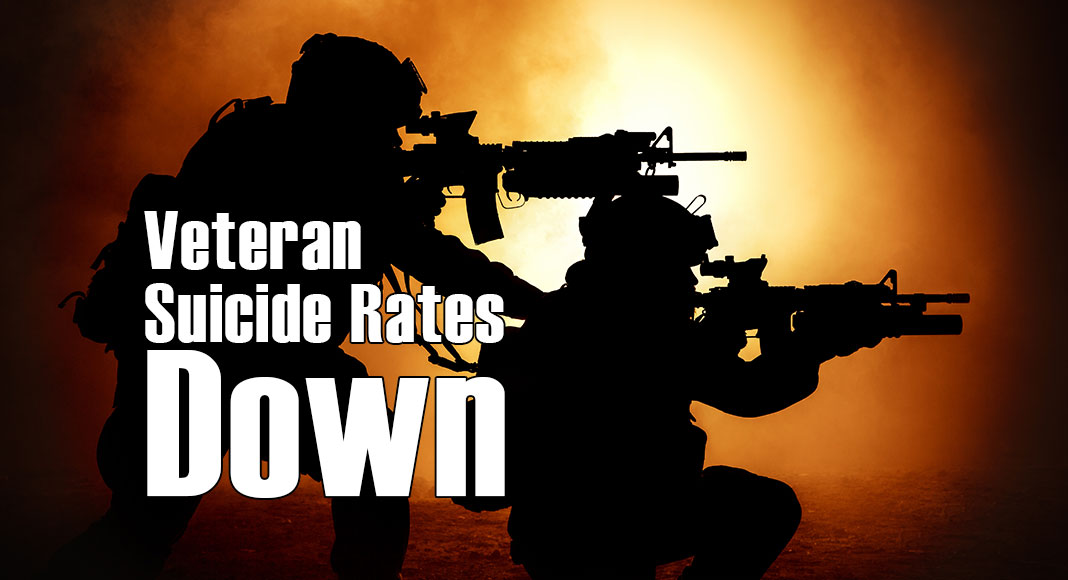
Mega Doctor News
Newswise — Many public health experts feared the COVID-19 pandemic would cause an increase in suicidal behavior among U.S. military veterans, a group that already has high rates of depression and posttraumatic stress disorder and which experienced a 30% surge in suicides between 2010 and 2018.
New evidence, however, suggests that during the first eight months of the pandemic that did not happen. According to a study published Aug. 25 in the journal JAMA Psychiatry, the number of veterans who reported contemplating suicide during the pandemic actually decreased relative to pre-pandemic levels. Similarly, no uptick was observed in suicide attempts.
For the study, researchers surveyed a nationally representative sample of 3,078 U.S. veterans in November of 2019 and then again in November of 2020. It was led by researchers at the U.S. Department of Veterans Affairs’ National Center for PTSD (NCPTSD), Yale School of Medicine, and the University of California, San Diego.
“Nearly a year into the pandemic, veterans as a whole showed great resilience in the face of the pandemic,” said Robert Pietrzak, director of the NCPTSD’s Translational Psychiatric Epidemiology Laboratory, professor of psychiatry and public health at Yale, and senior author of the study.
The findings align with national data from the Centers for Disease Control, which found that, contrary to expectations, suicide deaths among U.S. citizens did not increase during the first year of the pandemic, and actually declined by 5.6% from 2019 to 2020.
Prior to the pandemic, 10.6% of U.S. veterans reported having thoughts of suicide in the prior year compared to 7.8% nearly a year into the pandemic — a 26% decline. Just 0.3% of veterans reported actually attempting suicide during the pandemic. This is half the rate of suicide attempts observed in the total U.S. population in the year prior to the pandemic. This finding is striking given that veterans have been identified as a high-risk group for suicide attempts relative to civilians, researchers said.
However, while the overall prevalence of suicidal thinking decreased, 2.6% of veterans surveyed — representing more than 475,000 veterans nationwide — still reported developing thoughts of suicide in the midst of the pandemic. These individuals tended to have a history of mental illness including posttraumatic stress disorder, substance use problems, or a history of past suicide attempts. Intriguingly, veterans who reported having been infected with COVID-19 were more than twice as likely to contemplate suicide. And the strongest risk factor for developing suicidal ideation was a perceived lack of social connection and emotional support during the pandemic.
According to the authors, one possible reason for the observed decrease in thoughts of suicide among U.S. veterans is that the pandemic prompted some of them to reach out and connect with others. Indeed, results of the study revealed that veterans who reported a decrease in suicidal thoughts also reported an increase in perceived social support during the pandemic.
“Veterans who reported a decrease in suicidal thoughts may have been better able to solicit social support during the pandemic by using virtual technologies” said Brandon Nichter, a clinical psychologist with the U.S. Department of Defense, visiting scholar at the University of California-San Diego, and lead author of the study.
Veterans aged 65 and older had substantially lower rates of suicidal ideation both before and during the pandemic. “Many older veterans have experienced multiple traumatic and stressful events, and may have been inoculated by these experiences to be better able to weather periods of prolonged stress,” Pietrzak said. “Having endured such events may have helped them develop adaptive coping strategies to better endure pandemic-related stress.”









